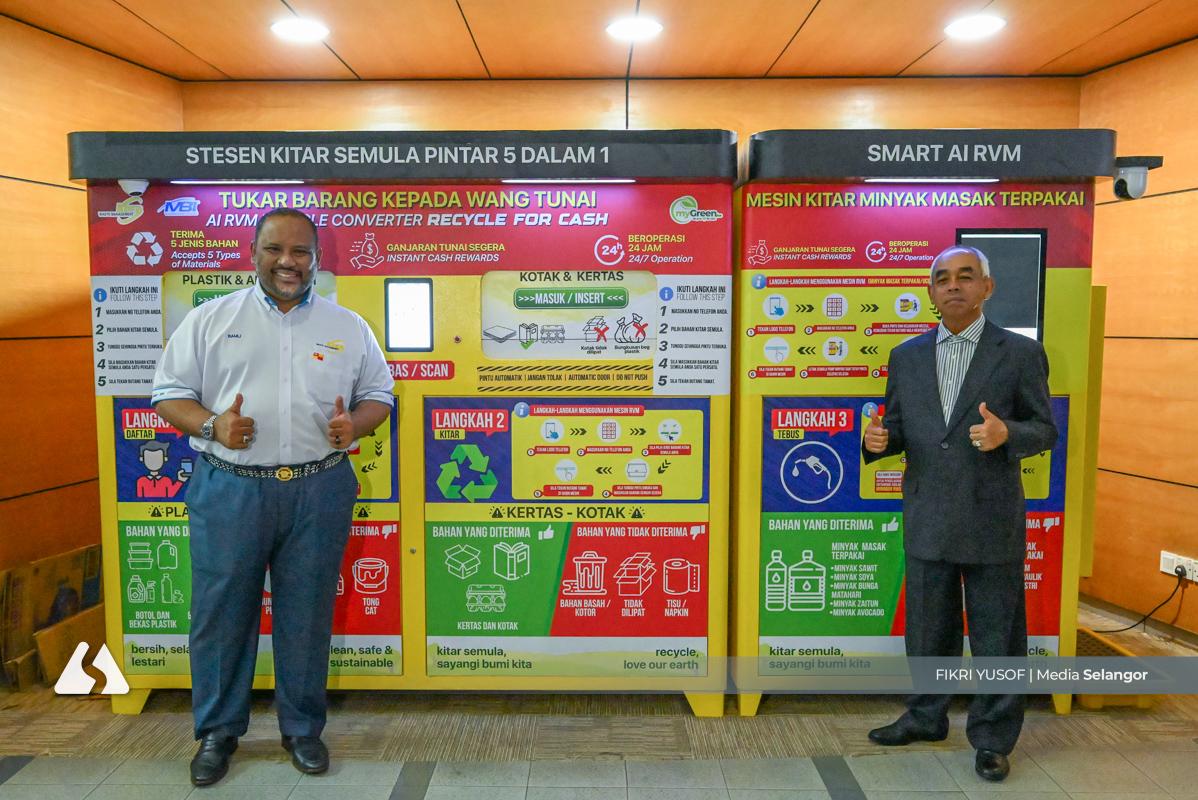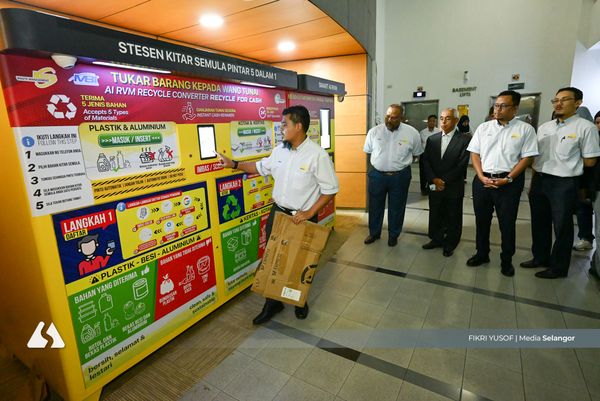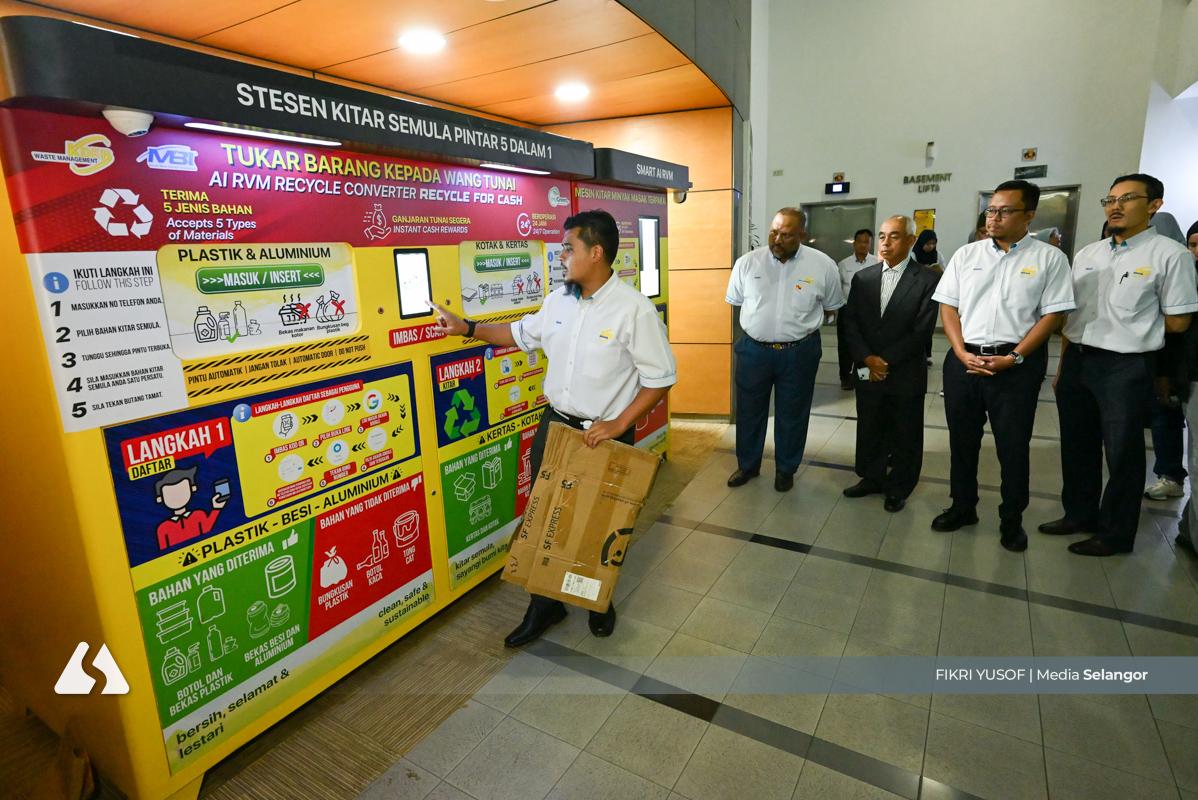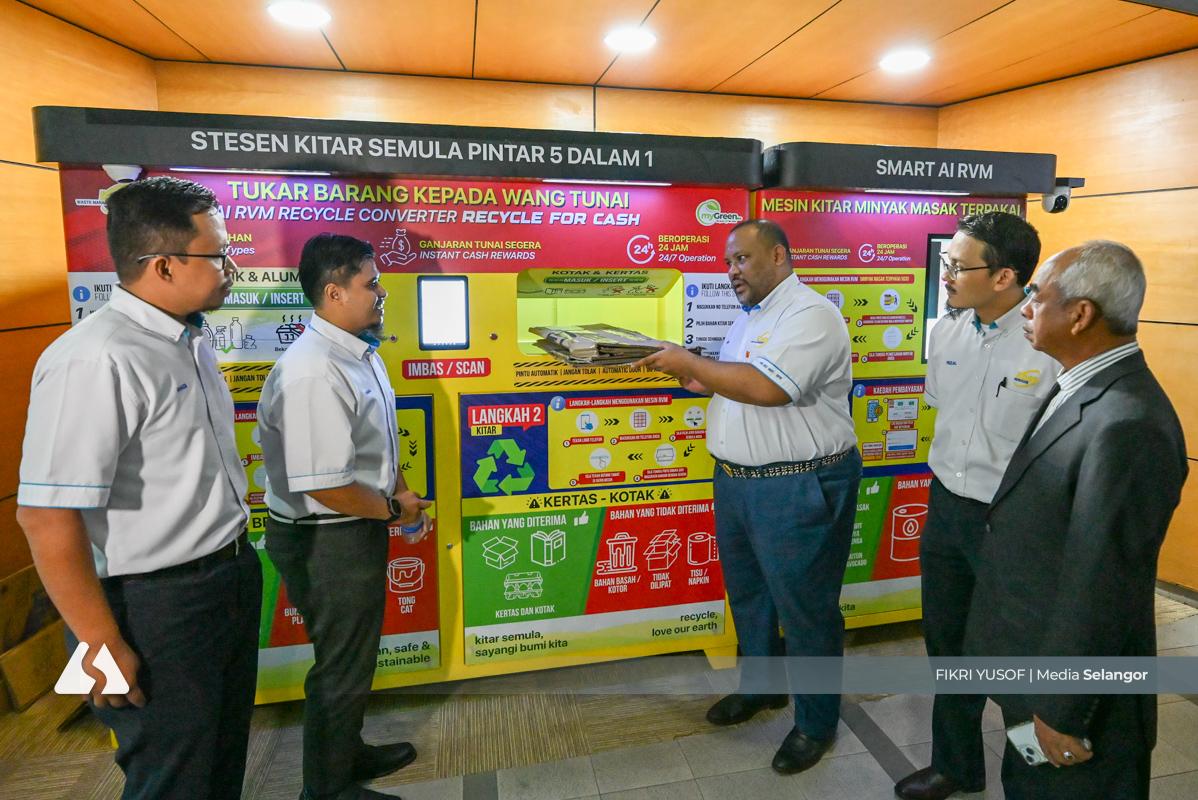SHAH ALAM, Oct 6 — Selangor residents can now exchange recyclable waste for cash following the launch of the state’s first artificial intelligence-powered smart 5-in-1 reverse vending machine (RVM) by KDEB Waste Management Sdn Bhd (KDEBWM).
The initiative, rolled out through KDEBWM’s subsidiary KDEB Services Sdn Bhd in partnership with HMA Digital Malaysia, allows residents to deposit items like paper, cardboard, plastic, aluminium cans, and used cooking oil into the machines and receive payments directly into their bank accounts.
KDEBWM managing director Datuk Ramli Mohd Tahir said the project was designed to make recycling more accessible and rewarding.
“The public can use this machine just like any vending machine, 24 hours a day, 365 days a year.
“Once registered, users only need to input their phone number and bank details, and within a few days, the payment will be transferred,” he said during the launch event at their headquarters today.
Ramli added that the RVM utilises smart sensors to detect cheating attempts, like mixing water with used oil or placing stones into bottles. The vending machine is also equipped with smart CCTV cameras and can interact with the public if they encounter any issues at the machine.
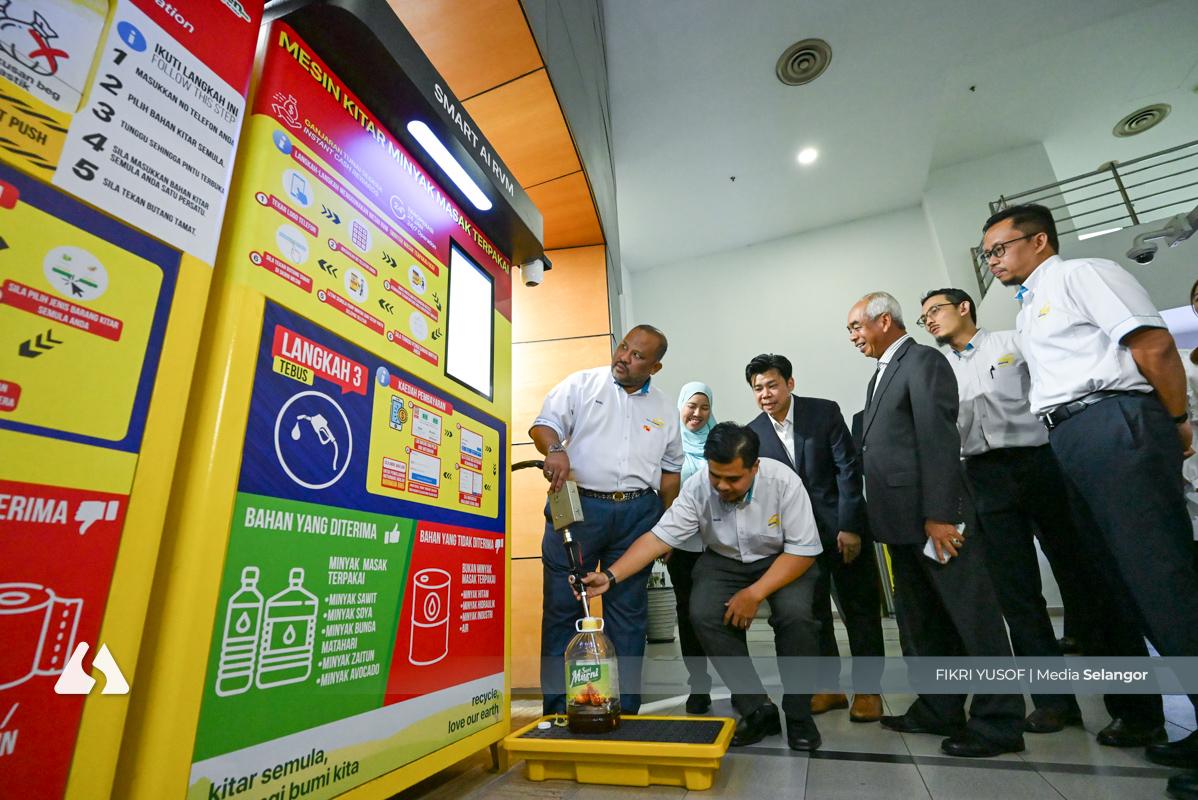
He said that KDEBWM is targeting 100 units across Selangor in the first phase, focusing on government offices, supermarkets, community halls, houses of worship, and other public areas.
Each unit has a daily capacity of 750kg, with sensors alerting the control centre when full. The rates paid to users will be determined by market demand.
“If plastic prices rise, users will benefit from higher rates. Prices will always be in line with the market.
“Waste is not just dirty; waste can also be money. With this machine, we can recover valuable resources and return some earnings directly to users,” Ramli said.
The project supports the First Selangor Plan’s (RS-1) target of raising the state’s recycling rate beyond 15 per cent this year, while also easing reliance on landfills and supporting waste-to-energy initiatives.
“Even if we achieve 10 per cent recycling, that is already significant, as it diverts waste from landfills and waste-to-energy plants, saving costs and preserving resources,” he said.
